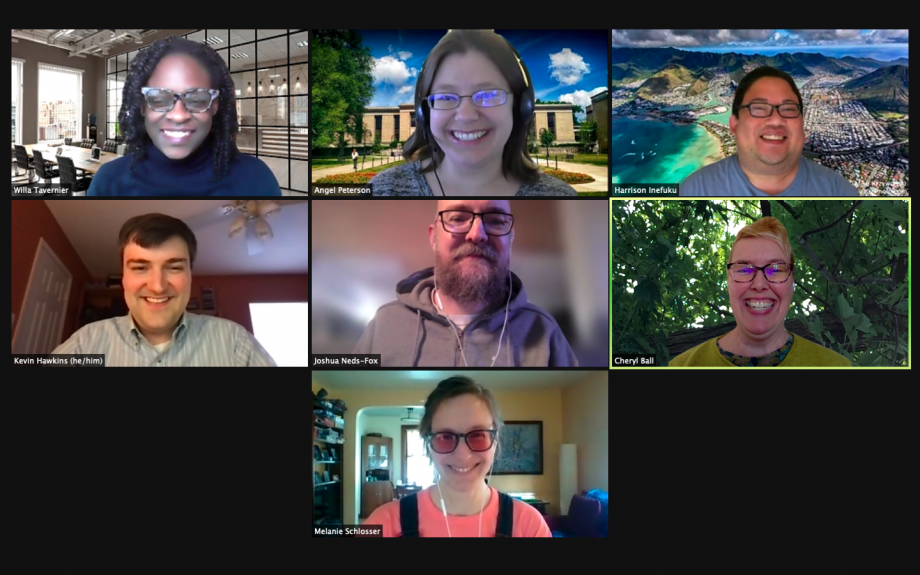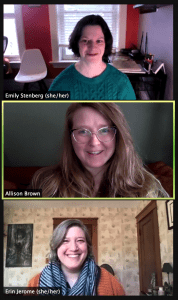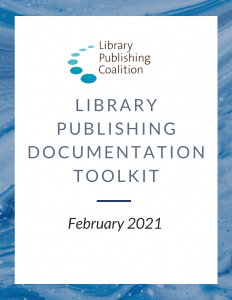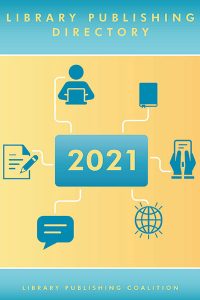March 1, 2021
Kudos to the Diversity and Inclusion Task Force!
By Melanie Schlosser
The Kudos program recognizes impactful work done by community members on behalf of the Library Publishing Coalition community.

This Kudos recognizes Cheryl Ball (Wayne State University), Kevin Hawkins (University of North Texas), Harrison Inefuku (Iowa State University), Joshua Neds-Fox (Wayne State University), Angel Peterson (Penn State University), and Willa Tavernier (Indiana University) for their excellent work on the new LPC Roadmap for Anti-Racist Practice:
The Diversity and Inclusion Task Force has done a huge amount of excellent work since it convened in July of 2019, but its recently published LPC Roadmap for Anti-Racist Practice is likely to have the largest and most lasting impact on the organization. The task force held a community call on anti-racism in September of 2020, and spent the next four months reviewing, organizing, and fleshing out the ideas that arose into a long-term plan for LPC to engage in anti-racist practice. They held extra meetings to accomplish this work alongside their regular activities (such as meeting with representatives from other LPC groups), and put in a substantial amount of time on it outside of meetings, as well. The result is a foundational document for the Diversity, Equity, and Inclusion Committee that will launch in July of this year, and one that will make it possible for that group to hit the ground running with community-driven anti-racist leadership for the whole organization. The task force deserves the recognition and thanks of the entire community. Kudos!
Statements from the task force:
Joint statement: “Working on the DEI Task Force is a way for us to demonstrate our commitment to anti-racist work in scholarly publishing. The anti-racist roadmap shows how the LPC stands behind these mandates on diversity, equity, and inclusion.”
Cheryl: “Already I have cited the roadmap to senior library leaders and have begun implementing its suggestions in other areas of my publishing work.”
Angel: “I joined the Library Publishing Coalition in 2020 and working on the anti-racist roadmap was my first official duty within the coalition. It is really inspiring to see our commitment to being a diverse and inclusive community. I fully plan on using these principals in my day-to-day work!”
Willa: “LPC has an amazing sense of community and the support for the work of the DEI Task Force that has come from the community is tremendously inspiring!”
This Kudos was submitted by Melanie Schlosser
 This Kudos recognizes Allison Brown (SUNY Geneseo), Erin Jerome (University of Massachusetts), and Emily Stenberg (Washington University St. Louis) for their stellar work on
This Kudos recognizes Allison Brown (SUNY Geneseo), Erin Jerome (University of Massachusetts), and Emily Stenberg (Washington University St. Louis) for their stellar work on 



 The Library Publishing Coalition is pleased to announce the publication of the
The Library Publishing Coalition is pleased to announce the publication of the 